Will we ever get over our absurd obsession with England vs Germany?
England vs Germany has long occupied the minds of supporters in this country. William Cook wonders if this fixture will always cease to be just another football match, and instead become something ugly and angry

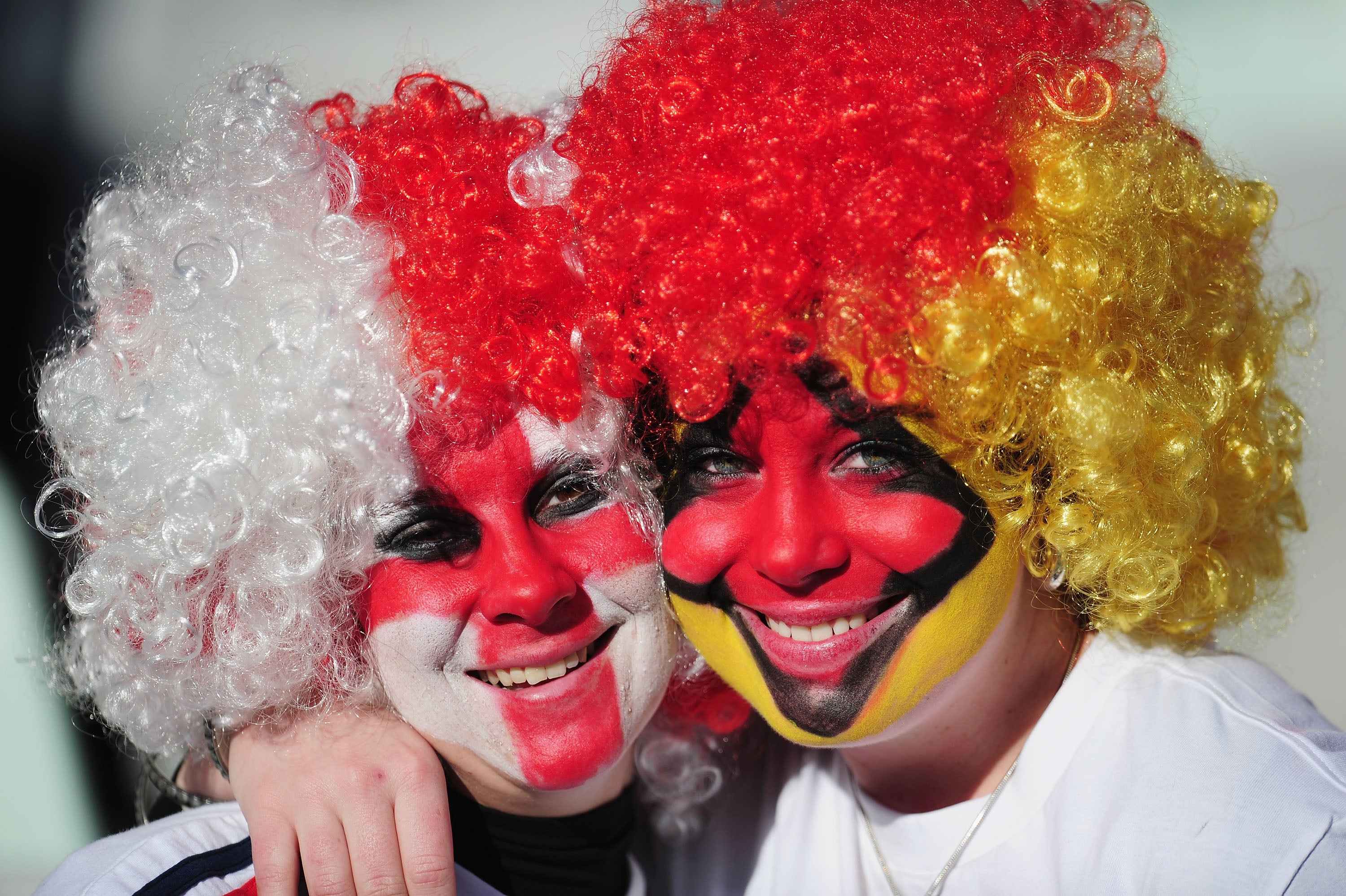
What are you doing on Tuesday evening? If you’re English or German, and you’re even remotely interested in football, I bet you’ll be glued to the nearest television, cheering on your national team. For most Germans, it’s just a bit of fun – an important game, for sure, but hardly a matter of life and death. For English fans, it’s an event of immense significance. Beating Germany is the best thing in the world. Losing to Germany is the worst thing in the world. For England fans, the result of this football match will colour the way they feel about all sorts of things – Covid, Brexit, everything – for weeks, even months, to come. How did we end up like this? How did a simple sporting contest acquire such monumental importance? And when are we going to wake up, realise how absurd it is, and get a life?
Don’t get me wrong. I know exactly how it feels to be obsessed with this football fixture. I’ve been obsessed with it for half a century, yet I dread it each time it comes around. The reason I dread it is simple: although I was born and raised in England, my father was born and raised in Germany – and ever since I was a child, I’ve wanted Germany to win.
I don’t blame my father for this betrayal. He gave me no encouragement. He always told me to keep my head down, like he kept his head down, as a tongue-tied Kraut in an English boarding school in the aftermath of World War Two. For him, being German was a guilty secret. He was born in Dresden during the war, he survived its destruction by the RAF, and was bundled onto a train to Hamburg by my German grandmother to escape the rapacious Red Army. In Hamburg, 1945, my grandmother met a British soldier called Gerry Cook, a Fleet Street journalist in Civvy Street, who asked her to come back to London and to bring my father with her, they would raise him as their own – my German grandfather was in a British POW camp at the time. No wonder my father was so keen to assimilate. No wonder he always cheered on the England team.
I didn’t set out to support Germany, but football always finds the truth in you. It doesn’t matter what you intend to do. When the whistle blows and the game begins, you find out who you really want to win. Throughout my childhood I kept my true allegiance hidden, cheering England and booing Germany alongside my English school friends. When that pretence became too painful, I took to watching the matches on my own. Whoever wins, I’m never happy. If England win, I dread the triumphalism of the England fans. If Germany win, I dread their indignant fury even more.
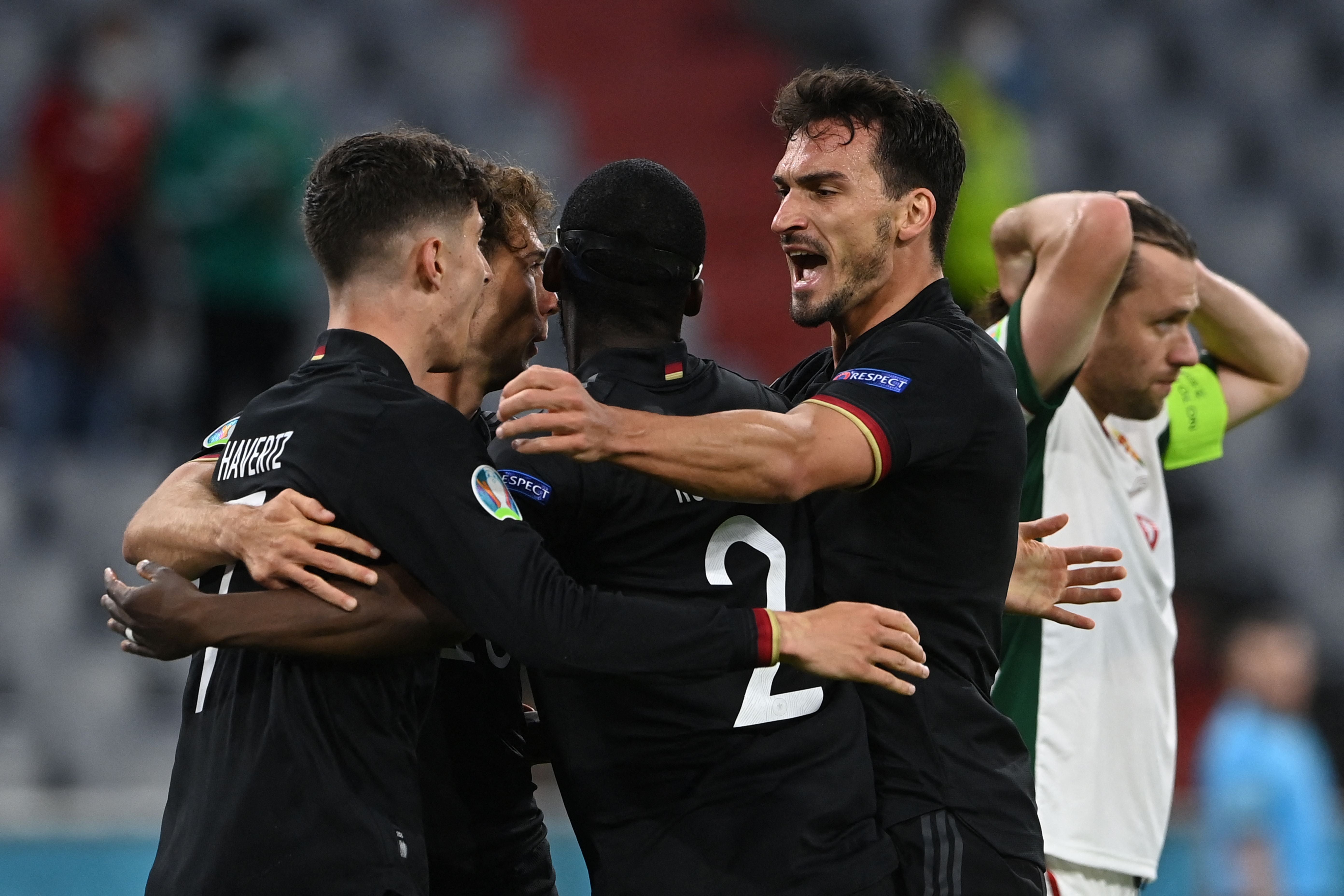
For the last fifty years I’ve been watching these matches as an illicit, furtive German fan, and during those fifty years I’ve seen English attitudes towards this fixture shift, reflecting shifting attitudes in England towards Germany as a whole. Yet my anxiety is always the same, in defeat or victory: will England fans sing “Two World Wars and One World Cup”? Will they boo the German national anthem? Will this fixture cease to be just another football match, and become something ugly and angry instead?
I was a toddler when England beat West Germany 4-2 in the 1966 World Cup final at Wembley, too young to remember, and we didn’t have a telly, in any case, but when I started school a few years later, it was still a schoolyard staple. My English schoolmates used to re-enact that final in the playground every lunchtime. Everyone wanted to be Geoff Hurst, the hat-trick hero. Nobody wanted to be on the German team, not even me.
Gazza’s tears turned this heroic failure into a sporting Dunkirk – a glorious defeat, with Germany cast in the role of pantomime villain
I didn’t see the 1970 World Cup quarter-final either, the one in Mexico, when England led West Germany 2-0 and ended up losing 3-2. I wanted to see it, but we still didn’t have a telly. However to admit that to my schoolmates would have been social suicide, so I lied and said I’d seen it, and nodded along when they repeated what their dads had told them: that England would have won easily if goalkeeper, Gordon Banks, hadn’t gone down with a tummy bug, and manager, Alf Ramsey, hadn’t taken Bobby Charlton off.
That defeat turned out to be a watershed. Unlike West Germany, England failed to qualify for the next two World Cups, and this growing disparity fed an enduring sense of injustice among my English schoolmates, and English football as a whole. During the 1970s, England produced loads of fine players (like Kevin Keegan, who won the European Cup with Liverpool before going to Germany to play for Hamburg, where he won European Player of the Year). Yet the English national team was always less than the sum of its considerable parts. The West German team was just the opposite. They were always there or thereabouts. They knew how to grind out a result. “Ruthlessly efficient” was the way English pundits put it, a grudging compliment which evoked an image of emotionless automatons, marching into battle.
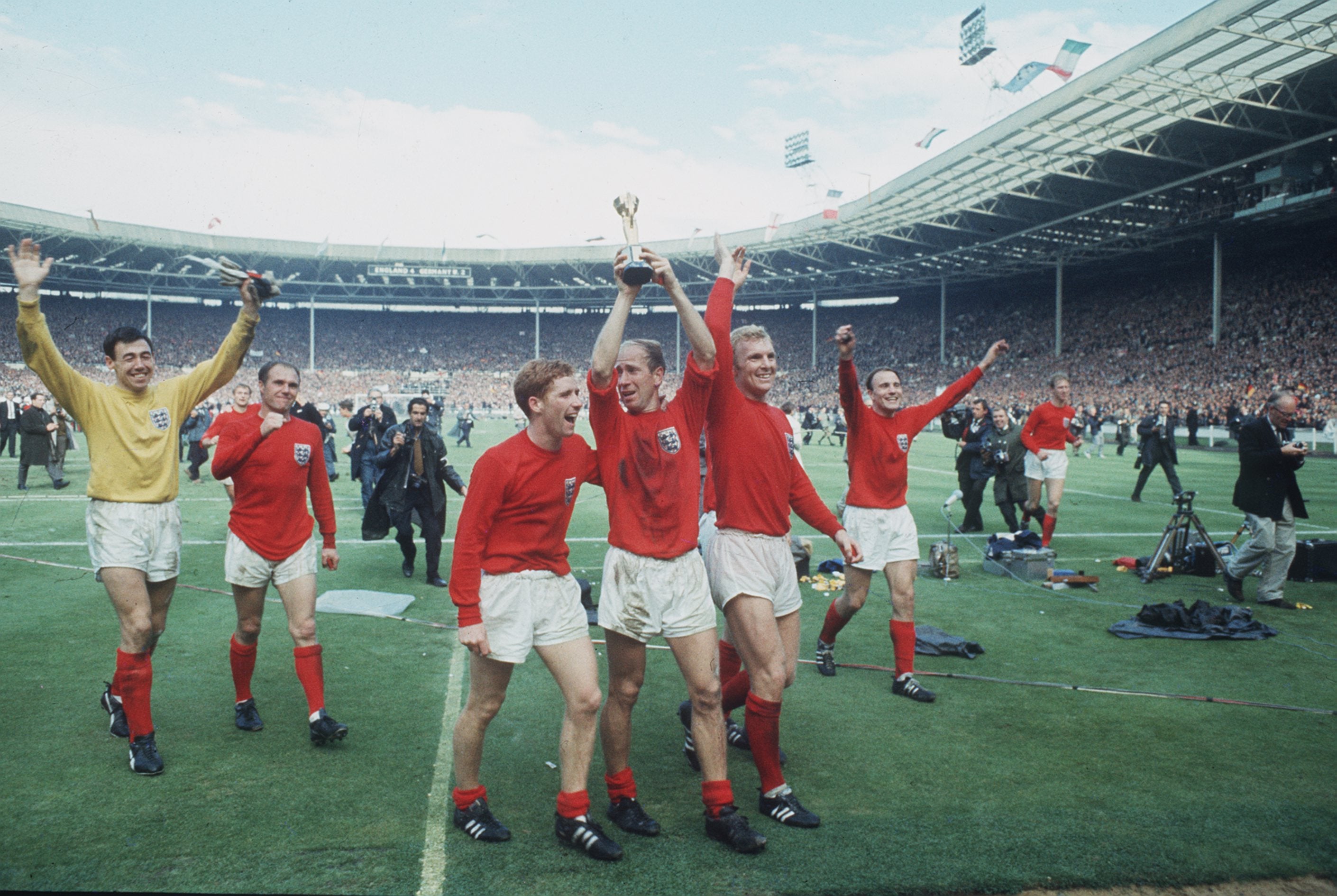
The next time England played West Germany in a World Cup finals was in Spain in 1982. The game ended in a 0-0 draw, but West Germany went through instead of England, on account of their other results. They reached the final that year, and again in Mexico four years later, and though they lost both times their record was now streets ahead of England’s. I could see how much that hurt. It wasn’t just about football. England had won the war but lost the peace, West Germany had done the opposite, and this economic turnaround clearly rankled, on the terraces and in the press.
There were no cheap city breaks back then, hardly any Brits went on holiday to Germany, and hooliganism meant football fans were strictly segregated, so, for most England fans, their only contact with Germans was on Spanish package holidays in the annual battle of the beach towels around the hotel pool. Curiously, the Englishmen I knew who’d fought in the war – like my maternal grandfather, who’d lost a brother at El Alamein – bore no animosity towards Germany and displayed little appetite for anti-German jokes. These “jokes” were ostensibly about the war, but they were really about the nostalgic culture that fed off it. It was my pampered generation, weaned on war films, who nursed a grudge.
The 1990 World Cup, in Italy, was the next big landmark. This was the year that English football changed. Graced by the brilliance of Paul Gascoigne – the best England player in a generation – English football became something that English fans could feel proud of. Germany spoiled the party, of course, beating England on penalties in the semi-final before going on to win the trophy. Gazza’s tears turned this heroic failure into a sporting Dunkirk – a glorious defeat, with Germany cast in the role of pantomime villain.
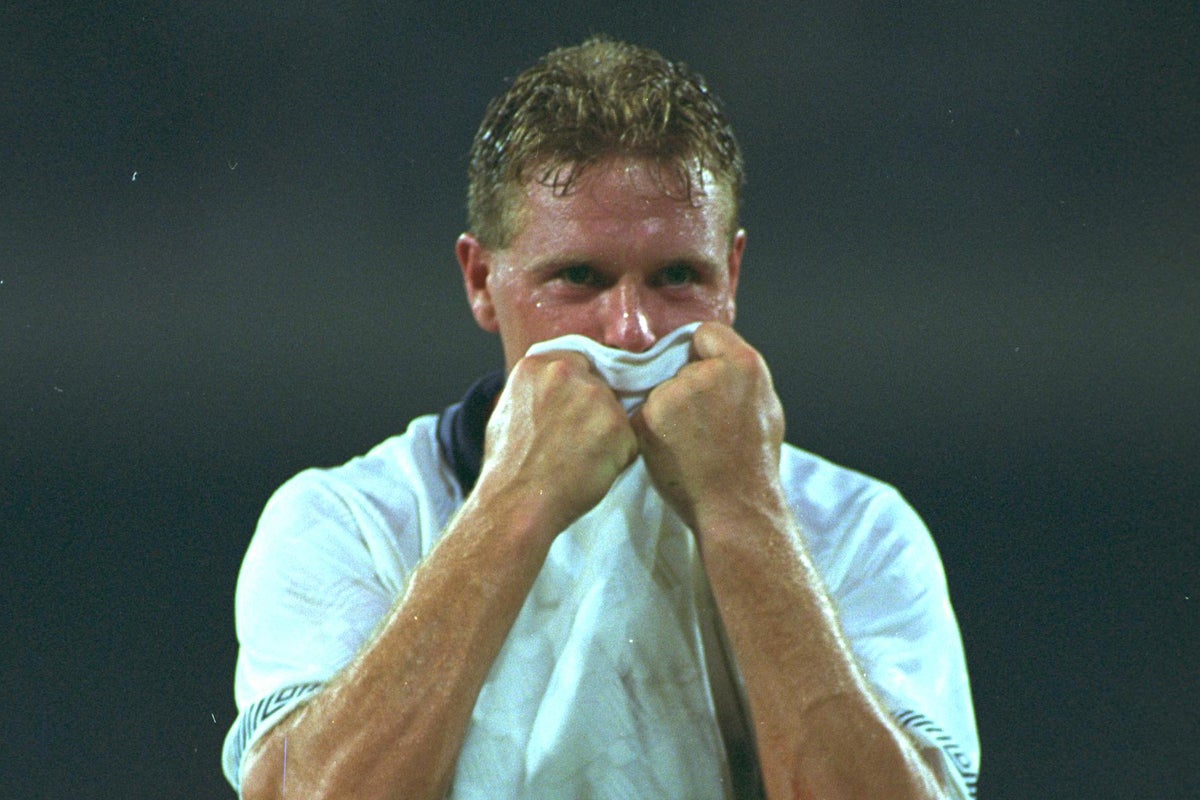
This penalty shoot-out was repeated six years later, at Wembley, in the semi-final of Euro 96, and this time I was there. I stood, poker-faced, among the England fans as the English and German players all scored their spot-kicks, until Gareth Southgate – now the England manager – stepped up and missed. I was secretly ecstatic, but now I was scraping a living as a jobbing journalist it was the stuff off the pitch which interested me most of all.
English football had changed a lot since Italia 1990. The Premier League destroyed some of the old romance, but it also eradicated a lot of the old squalor. The new all seater stadia were more anodyne, but they reduced the aggro, and an influx of foreign players meant that many English football teams now featured German stars.The England team was now multi-racial. As a teenager I remember hearing English fans making racial slurs at black British players. It’s certainly a lot better than it used to be.
English Hun-bashing humour was utterly trivial by comparison, but it still left an unpleasant taste. “Achtung! Surrender!” shrieked the Daily Mirror, before England’s game against Germany in 1996. “Blitzed” yelled the Sunday Mirror, when England beat Germany 5-1 in Munich, five years later. Yet there was another form of England fandom now – more benign, less jingoistic. The unofficial anthem of Euro 96 wasn’t “Ten German Bombers,” but that sentimental ballad, “Three Lions – Football’s Coming Home”.
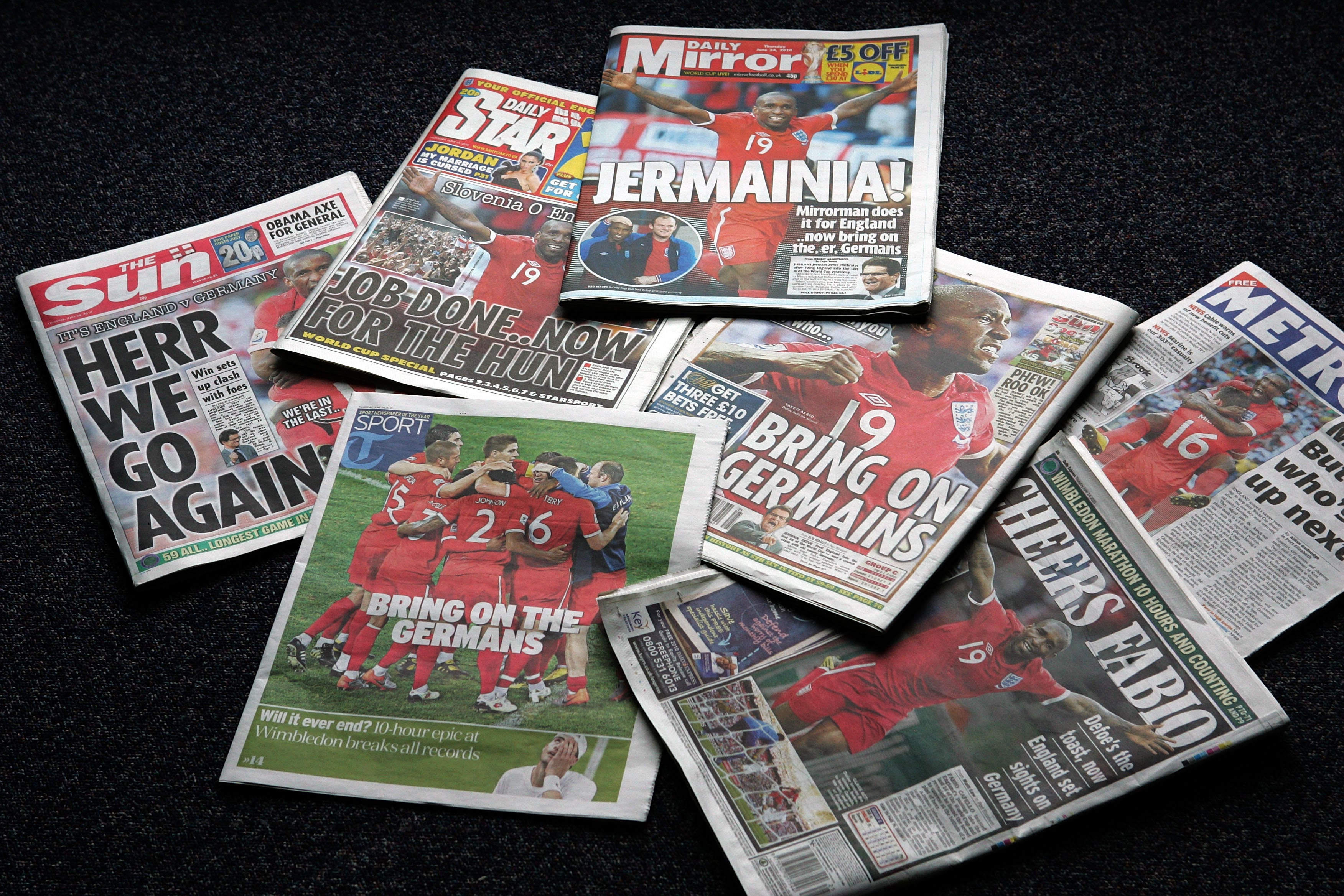
Germany had also changed. West Germany had been hard to love, but the reunified Germany felt different. It was less stuffy, more inclusive. After the fall of the Berlin Wall, the reinstated German capital became party central. British clubbers started going there for long weekends, on cheap flights with easyJet and Ryanair, and Germany’s public image altered. If Berlin was the capital of cool, maybe the Krauts weren’t so bad after all.
In 2006, Germany hosted the World Cup. A few months before it started, I went to Germany to report on the final preparations for the Independent. The British tabloids had been full of horror stories, predicting violence between rival fans. I wanted to see what the Germans thought. Were they dreading this English invasion? Much to my surprise, the German fans I met there were relaxed and optimistic. They didn’t expect any trouble. They felt sure the tournament would be a great success, and they were right. Having been reared in England, I thought Germany’s vast outdoor fan zones – where supporters of both sides could congregate to watch the games for free on giant screens – would be a recipe for disaster. I couldn’t have been more wrong. That summer the Bundesrepublik became a gigantic street party. The international reputation of the country was transformed.
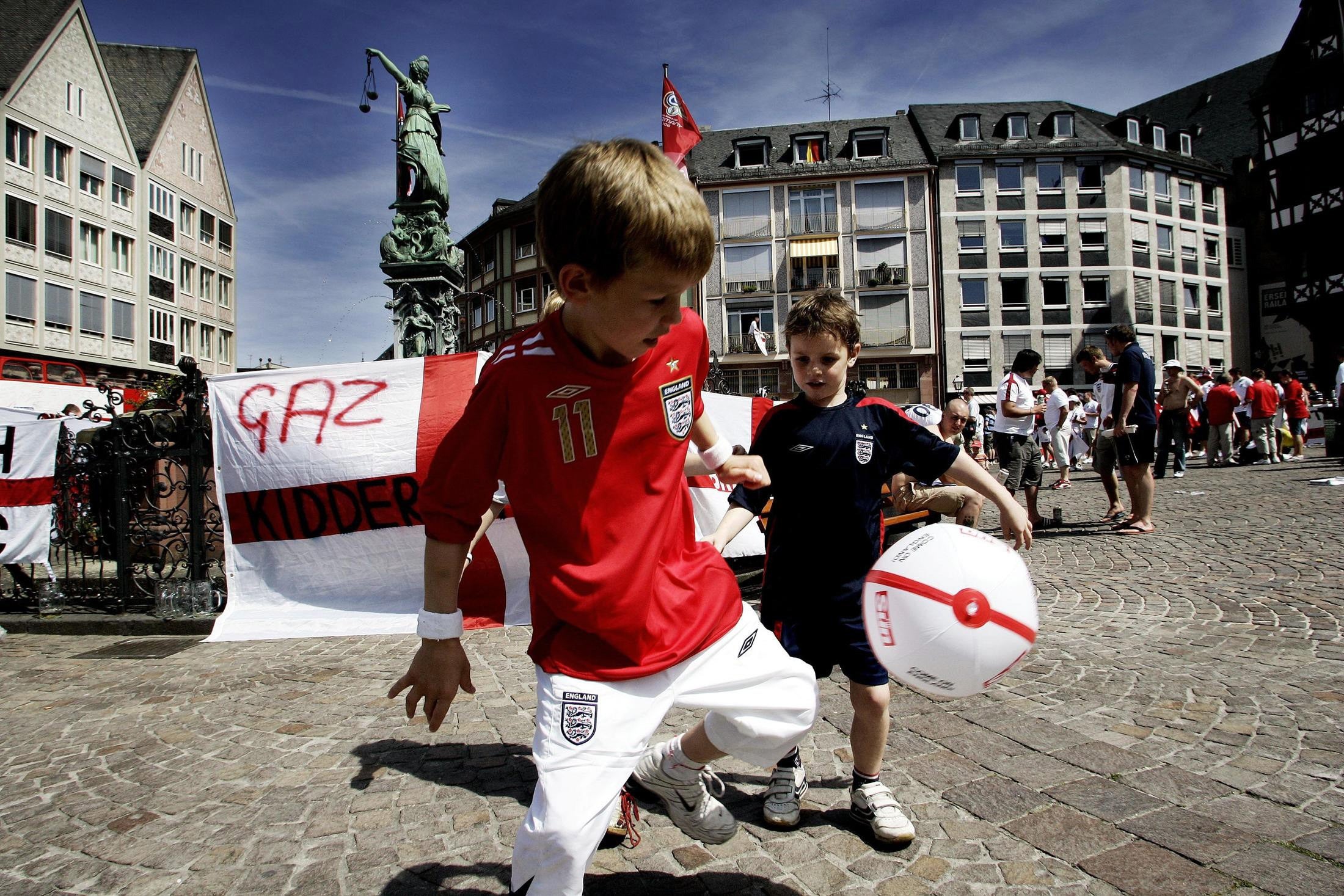
The German team was different too. Now the Nationalmannschaft boasted black and Turkish players, reflecting the multi-cultural make-up of modern Germany. Their style of play had also altered. It was more free flowing, more adventurous. They weren’t invincible, but they were a joy to watch. For the first time in my life, neutrals actually wanted them to win. After all these years, they’d become everyone’s second favourite team.
Well, almost everyone. The old antagonism wasn’t what it was, but it was still there, nonetheless. When England played Germany yet again, in the 2010 World Cup, in South Africa, it still felt like more than just another game. Germany led 2-0, then England pulled a goal back, and then Frank Lampard lashed in a ferocious shot off the underside of the bar. The ball bounced over the line, a good foot over, but there was no goal-line technology back then, and the referee waved play on. Germany went on to win 4-1. England fans were furious, and rightly so. German fans said it was payback for England’s decisive, disputed third goal in the 1966 World Cup final.
At least if Germany win, we’ll be spared the image of Boris Johnson in an England shirt
Which brings us to this week’s showdown, and this time the traditional roles are reversed. This time, Germany are the free-scoring side with the leaky defence. This time, England are the team who know how to shut up shop and scrape a 1-0 win. No wonder England are slight favourites. After following the Nationalmannschaft for fifty years, I’ve never felt less confident. The last match in the old Wembley stadium, where England won the World Cup, was against Germany, and Germany won 1-0. Dietmar Hamann, a Liverpool favourite, scored the only goal. The England manager, Kevin Keegan – a player who personified Anglo-German friendship – resigned straight after the game.
This week, in the new stadium, I have a hunch that 1-0 scoreline will be reversed, and everyone in England will be ecstatic – everyone apart from me. Yet I take comfort from the fact that, if I was watching this game in Germany, it would be no big deal – about as important as Love Island, according to one German tweeter. Naturally, German football fans aren’t quite so blasé about the outcome, but they don’t see England as the old enemy. They love English football. They regard Wembley as the home of football. If they have a grudge match, it’s against the Netherlands, not England.
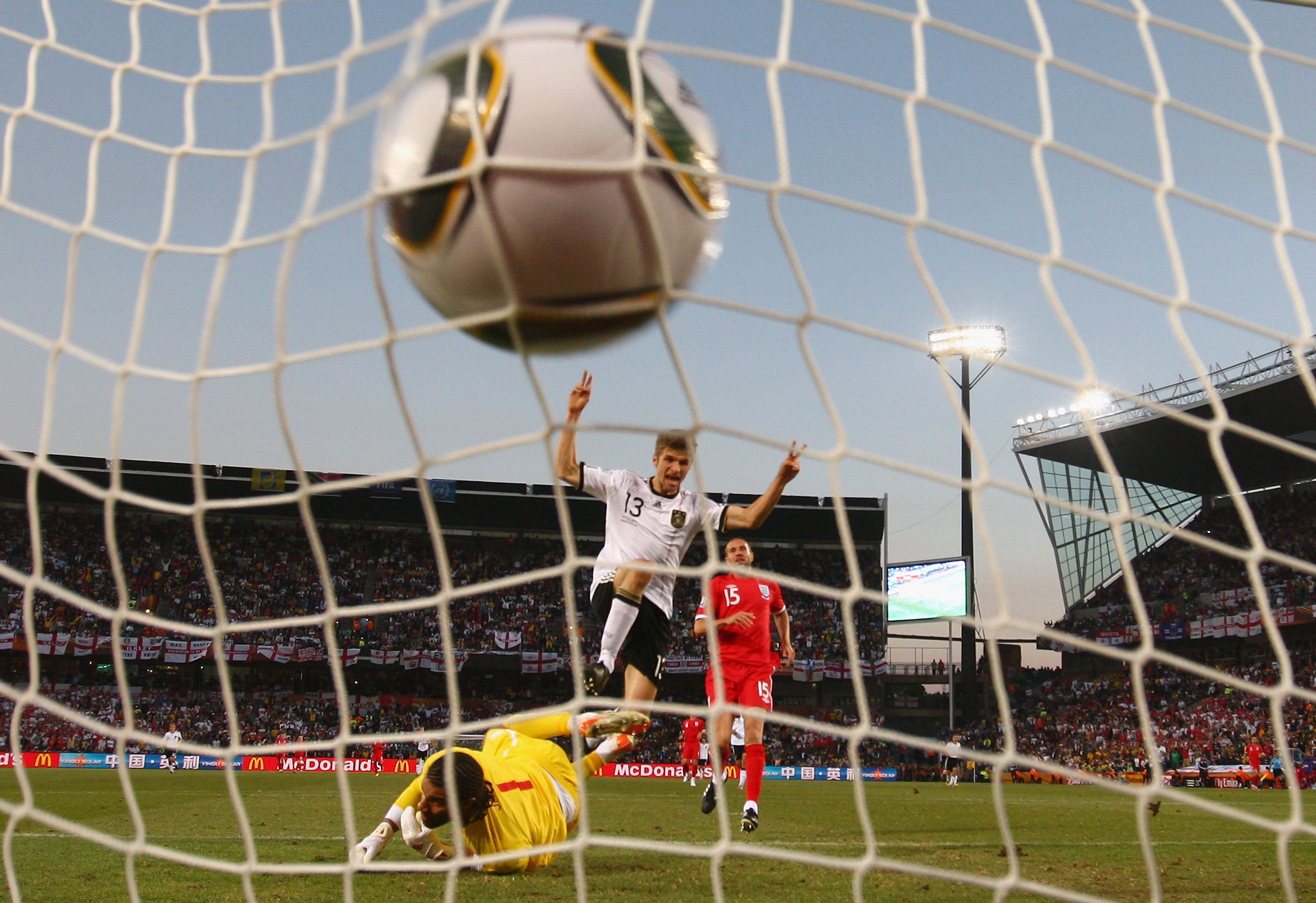
“Germany may beat us at our national sport today, but that would be only fair,” declared the Daily Mail, before the 1966 World Cup final. “We beat them twice at theirs.” Nasty stuff, and a few years ago I would have said those bad old days were over. Sure, there was still a special edge to these Anglo-German football matches, on the English side at least, but a lifetime since the Second World War that old antipathy was dwindling – or so it seemed. Yet that was before Brexit, and now I’m not so sure. Will the resurgent nationalism of the last five years reverse this process? Will our populist government exploit an England win for their own divisive ends? Harold Wilson reckoned England’s shock defeat by West Germany in 1970 contributed to his shock defeat in the general election four days later. Will an England victory over Germany contribute to further Conservative victories at the polls? I hope not. For me, there’s nothing quite so nauseating as watching opportunistic politicians cosy up to victorious football teams, on the left or on the right.
God knows what headlines the papers will come up with if England win. Will the right-wing press try to couple the whole thing with Brexit? At least if Germany win, we’ll be spared the image of Boris Johnson in an England shirt. Yet if England lose, again, we’ll be stuck in that same old cycle of envy and recrimination. Perhaps an England win, on penalties, would help to clear the air. I used to fear England winning the World Cup or the Euros, afraid it might fuel English jingoism. Now I wonder if defeat doesn’t fuel it even more. Maybe if England win this game, England fans will go barmy, wake up with filthy hangovers, and realise what the Germans realised long ago – that for all the hype and bluster, England vs Germany is just a game.
Join our commenting forum
Join thought-provoking conversations, follow other Independent readers and see their replies
Comments